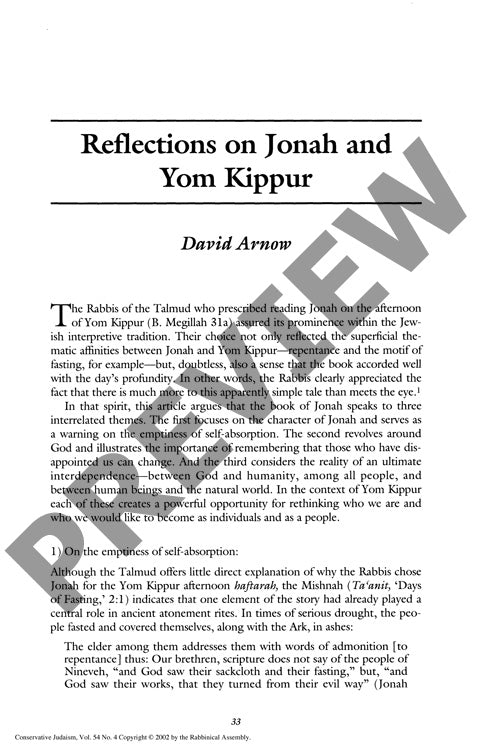Reflections on Jonah and Yom Kippur
Couldn't load pickup availability
The Book of Jonah's presence in Yom Kippur liturgy extends far beyond simple lessons of repentance and fasting, revealing profound spiritual truths that speak to both personal and collective transformation. Through close textual analysis and midrashic interpretation, three interrelated themes emerge that illuminate the text's deeper significance. First, the character of Jonah serves as a warning against self-absorption, demonstrated through his flight from divine command and his inability to embrace mercy for Nineveh's inhabitants, contrasting sharply with prophetic ideals of universal compassion. Second, the narrative illustrates God's evolving capacity for mercy, tracing a developmental progression from the destruction of the flood generation and Sodom and Gomorrah to the compassionate response to Nineveh's repentance, suggesting that those who disappoint can change. Third, the text reveals fundamental interdependence between God and humanity, among all peoples, and between humans and the natural world, challenging notions of independent selfhood. Drawing upon Talmudic sources, medieval commentaries, and mystical literature, these themes create opportunities for moral self-reflection during Yom Kippur. Jonah's message transcends individual transformation, calling readers to recognize their place within a larger interconnected whole and to work toward creating a more compassionate world for all.

More Information
-
Physical Description
-
Publication Information
Published 2002
ISBN
-
Publication Credits
David Arnow

